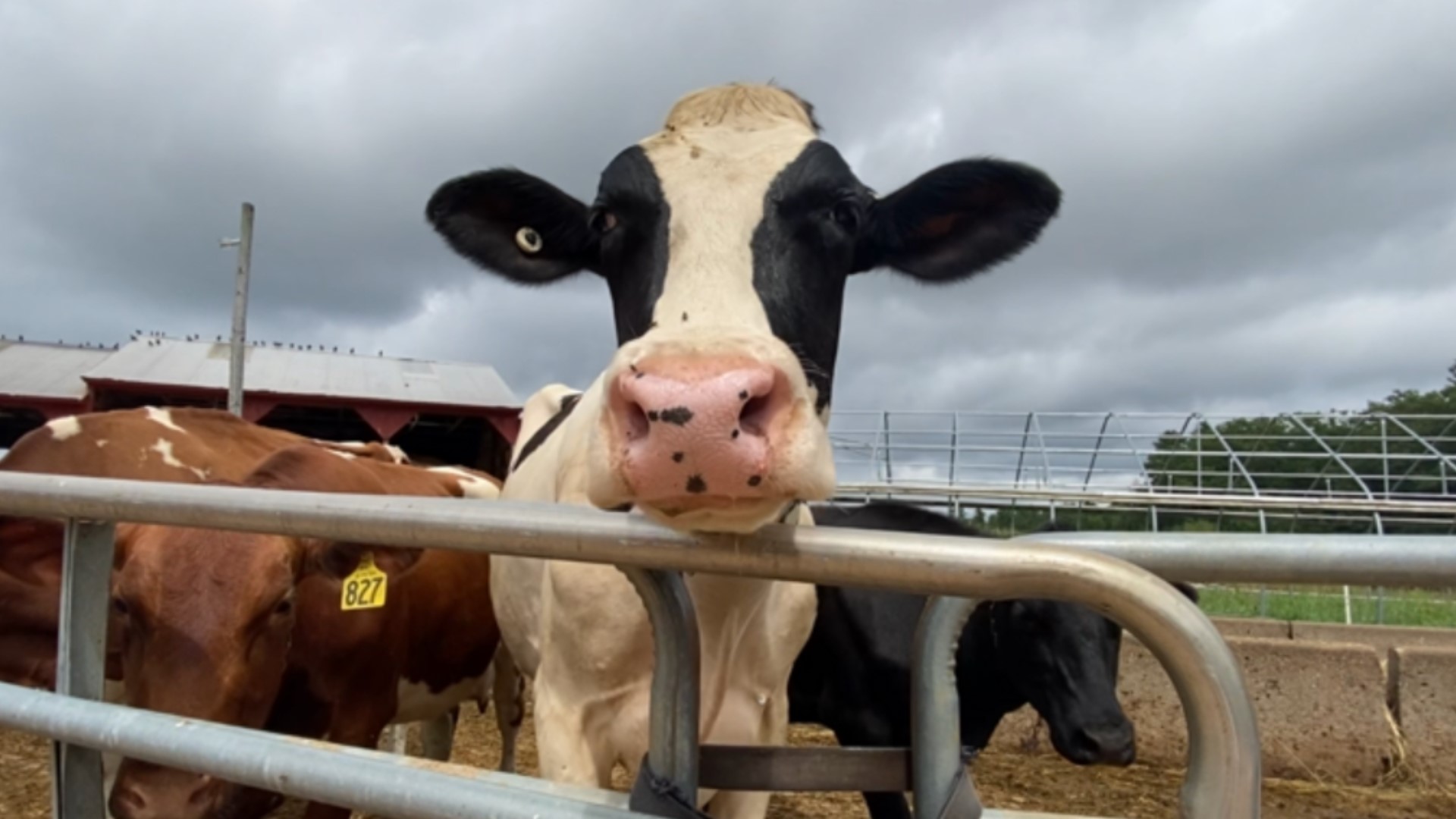MAINE, USA — American dairy producers are on alert as the Food and Drug Administration has confirmed H5N1 avian influenza in cattle in nine states.
Colorado is the latest to turn up positive cases among dairy cattle, joining Idaho, Kansas, Michigan, New Mexico, North Carolina, Ohio, Texas, and South Dakota.
The FDA's initial testing last week found that pasteurization kills the virus, so the administration announced commercial dairy products in stores remain safe to buy and consume. The federal agency recently released a new round of testing that returned the same results. It also found no traces of the virus in powdered baby formula.
As of Wednesday, there are no H5N1 cases in Maine, and none of the currently impacted states are close to New England. But Maine farmers have already been taking precautions. Following FDA guidance, producers should limit animal movement, test and get negative results when moving lactating dairy cattle across state lines, and work to secure farms from outside contact.
Sarah Littlefield directs the Maine Dairy and Nutrition Council, representing all of Maine's 145 cow dairy farms. She also assures Mainers the food supply is safe.
"Maine's dairy farmers are all following the same routine and protocols that they follow every day to ensure their food's safety," Littlefield said. "And know that, while consumers are concerned, know that the dairy farmers are concerned as well."
Jenni Tilton-Flood manages Flood Brothers Farm, a dairy farm in Clinton that produces 18,000 gallons of milk a day. Littlefield said it's the largest dairy farm in the state. Tilton-Flood said they've been limiting cattle movement, as the FDA and USDA advise, and limiting visitors.
"It's very concerning when we have something new, and we are in an age where we really think we should have all of the information we want right now," Tilton-Flood said of the virus.
Littlefield wanted Mainers to know agritourism is still vital, and even if a farm is temporarily closed to visitors, it will need support when open again.
"If you have the chance to get on a dairy farm in the next couple of months, we'd love to help you do that," Littlefield smiled.
Regardless of the virus, the FDA advises Americans not to drink unpasteurized milk. Along with the CDC, the agency reports the virus can pose a serious health risk, and was responsible for nearly 2,000 illnesses from 1993 to 2012.

